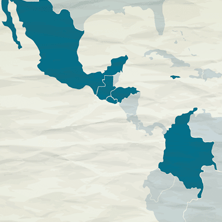 Credit is the lifeblood of business—just ask the three Seattle teachers who in 1971 borrowed $5,000 to keep their business, Starbucks Coffee, Tea, and Spice, running. Some small and midsized businesses, however, find their avenues limited when it comes to borrowing funds. This is especially true in developing countries, where many businesses lack the required collateral (often real estate and land).
Credit is the lifeblood of business—just ask the three Seattle teachers who in 1971 borrowed $5,000 to keep their business, Starbucks Coffee, Tea, and Spice, running. Some small and midsized businesses, however, find their avenues limited when it comes to borrowing funds. This is especially true in developing countries, where many businesses lack the required collateral (often real estate and land).
Further, asset-based lending, a common financing tool in the developed world, is not an option in many developing countries, where banks "generally do not view movable assets—which include capital stock, inventory, and receivables—as adequate sources of collateral," write Atlanta Fed staffers Stephen Kay and Ed English in the third-quarter issue of EconSouth.
The good news is that secured transaction reform (STR) is making headway in a number of developing countries, including El Salvador and Guatemala. These reforms would provide the legal and institutional framework for small businesses to use movable assets as collateral. English and Kay explore these reforms in "Secured Transaction Reform: Moving Ahead with Movable Assets." In simple terms, they write that STR "would enable a farmer to pledge his cows for a tractor loan or a merchant to pledge her inventory to expand her business."
For a more in-depth discussion of STR in the western hemisphere, read the full article. Also, don't miss the EconSouth Now podcast on the same topic, featuring Charles Shapiro of the Institute of the Americas and Boris Kozolchyk of the National Law Center. English and Spanish-language versions are available here.


